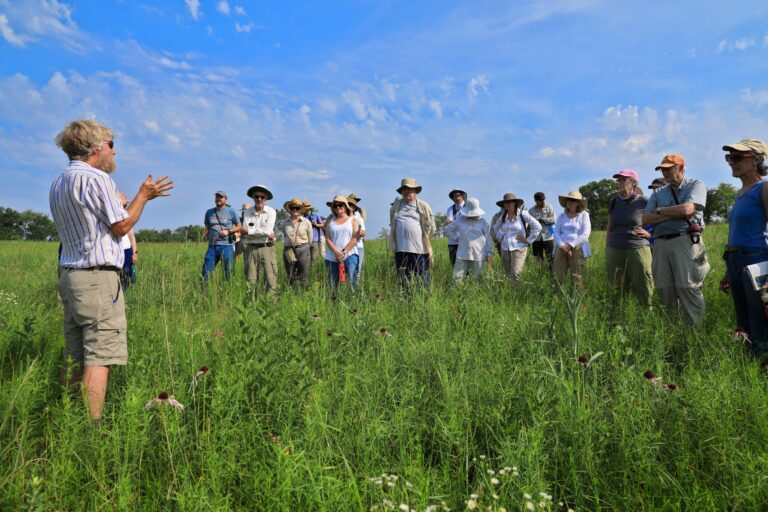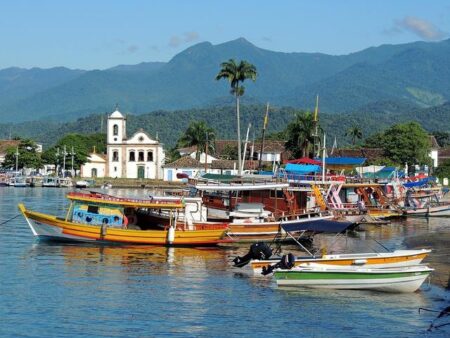In the shadow of Brazil’s burgeoning space ambitions, the traditional Black communities surrounding the AlcГўntara Space Center are mounting a determined resistance against the government’s expansion plans. Located in MaranhГЈo state, AlcГўntara is heralded as a strategic launch site due to its proximity to the equator, promising significant economic and technological advancements. Yet for the Quilombola communities-descendants of escaped enslaved Africans-these developments threaten not only their ancestral lands but also their cultural heritage and way of life. As tensions escalate, The Real News Network delves into the complex struggle of these communities fighting to defend their land against state and corporate interests, highlighting the broader issues of environmental justice, indigenous rights, and social inequality in Brazil’s race to the stars.
Traditional Black Communities Confront Land Displacement at AlcГўntara Space Center
In the shadow of Brazil’s AlcГўntara Space Center, generations of traditional Black communities face the threat of displacement as expansion plans move forward. These communities, rooted in a history that traces back to escaped enslaved peoples, have cultivated a rich cultural and social fabric closely tied to their ancestral lands. However, government initiatives prioritize the strategic and economic value of AlcГўntara’s location for launching rockets, often at the expense of these residents’ rights and livelihoods. Activists and local leaders have voiced concerns over inadequate consultation processes and the absence of fair compensation, highlighting the persistent marginalization experienced by these populations.
Resistance has taken many forms, from peaceful protests to legal challenges, as communities seek to preserve their homes and heritage. Among their demands are:
- Recognition of land ownership through official titles and legal protections
- Inclusive dialogue involving community representatives in decision-making
- Environmental safeguards to prevent damage to sacred sites and local ecosystems
- Restitution and reparations for historical and ongoing injustices
The conflict underscores a broader national struggle between development projects and the rights of traditional peoples, raising urgent questions about who truly benefits from Brazil’s expanding space ambitions.
| Community | Estimated Population | Years Occupied | Status |
|---|---|---|---|
| Quilombo Sacunay | 450 | 150+ | Legal Battle Ongoing |
| Quilombo do Livramento | 320 | 120+ | Under Negotiation |
| SГЈo Marcos | 280 | 100+ | Displacement Threatened |
Environmental and Cultural Impacts of Brazil’s Spaceport Expansion on Local Residents
The expansion of Brazil’s AlcГўntara Space Center has escalated tensions in the region, as traditional Black communities voice concerns over the profound environmental degradation and the uprooting of cultural heritage. The spaceport’s infrastructure projects threaten local ecosystems, including delicate mangroves and abundant fauna, which are integral to the community’s way of life. Residents report increased pollution and disruption of natural water sources, jeopardizing both their health and subsistence practices. This ecological impact starkly contrasts with the technological ambitions the spaceport represents, revealing a conflict between development and preservation.
Beyond environmental harm, the expansion encroaches upon ancestral lands, displacing families and dissolving communal bonds that have sustained these populations for generations. Local activists emphasize:
- Loss of sacred sites central to community identity and oral traditions
- Forced relocations without adequate compensation or consultation
- Heightened socio-economic vulnerabilities as traditional livelihoods are disrupted
These factors foster a climate of resistance rooted in the communities’ determination to defend their territory, culture, and autonomy against a backdrop of state-backed industrial growth and globalization pressures.
| Impact Category | Key Concerns | Community Response |
|---|---|---|
| Environmental | Pollution, habitat destruction | Protests, ecological monitoring |
| Cultural | Loss of sacred sites, displacement | Legal action, cultural preservation initiatives |
| Social | Economic instability, social fragmentation | Community solidarity, advocacy campaigns |
Strategies for Protecting Indigenous Rights and Ensuring Inclusive Development Policies
Effective measures to uphold the rights of Traditional Black communities in the face of expansive projects like the AlcГўntara Space Center demand a multifaceted approach. Central to this is recognition of land rights grounded in historical occupation and cultural heritage, paired with rigorous legal protections that prevent forced displacement. Empowering local leaders through participatory governance structures ensures these communities are no longer passive observers but key decision-makers in development initiatives. Additionally, transparent impact assessments that include ethnographic studies can inform policy adjustments that respect indigenous worldviews and socioeconomic practices.
Inclusive development policies must prioritize sustainable economic opportunities that align with community aspirations, such as agroforestry, eco-tourism, and traditional crafts, rather than imposing externally driven industrial models. Collaborative frameworks involving civil society, government agencies, and indigenous organizations facilitate dialogue and mutual accountability. The table below outlines critical pillars for safeguarding these vulnerable populations while promoting equitable growth:
| Strategy | Key Action | Expected Outcome |
|---|---|---|
| Legal Recognition | Formalize land titles & demarcate territories | Prevent encroachment & secure autonomy |
| Community Engagement | Include leaders in planning & decision-making | Enhanced representation & trust |
| Sustainable Livelihoods | Develop culturally relevant economic projects | Economic resilience & cultural preservation |
| Environmental Safeguards | Incorporate traditional ecological knowledge | Long-term ecosystem health |
Closing Remarks
As Brazil continues to push forward with its ambitions for space exploration, the steadfast resistance of traditional Black communities around the AlcГўntara Space Center highlights the ongoing struggle for land rights and environmental justice. Their fight underscores a critical question: at what cost does progress come, and whose voices are heard in the process? The story of these communities is not just about opposing a spaceport-it is about defending cultural heritage, autonomy, and the right to a sustainable future. As this conflict unfolds, it remains essential for policymakers, activists, and the international community to listen closely and seek solutions that respect both Brazil’s developmental goals and the rights of its marginalized populations.




